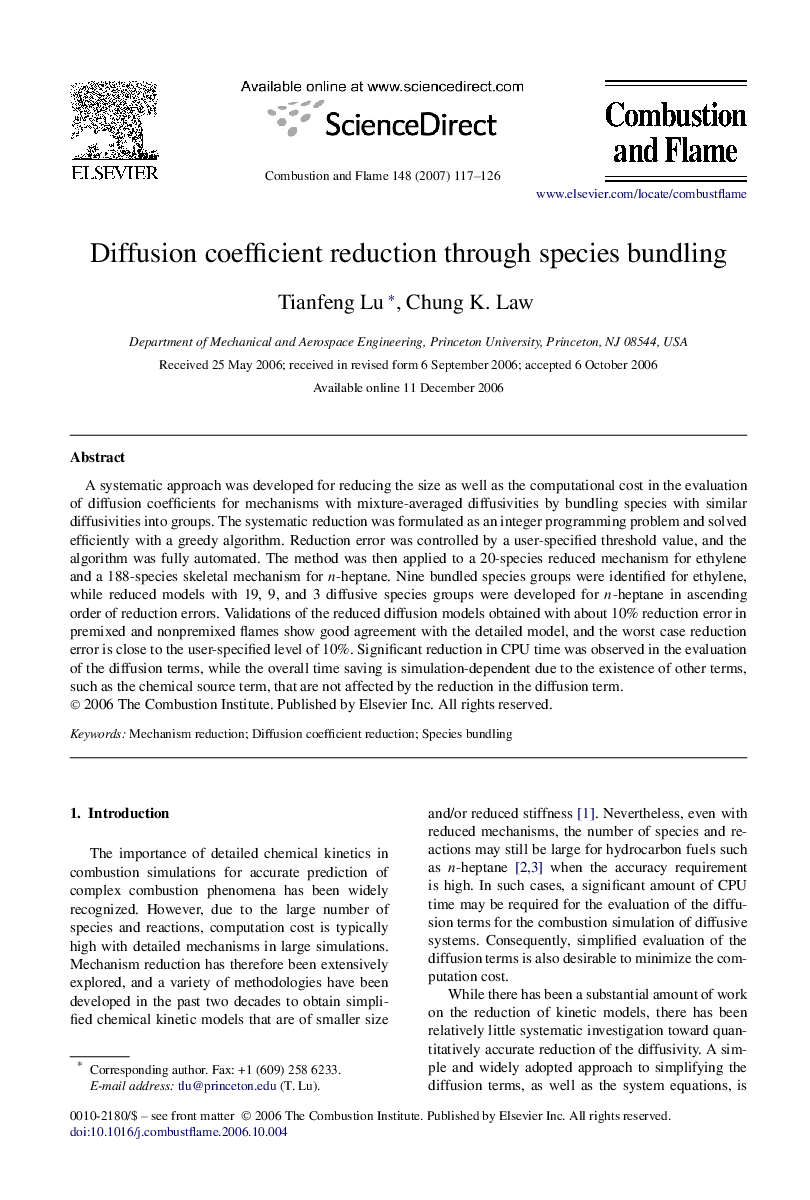| Article ID | Journal | Published Year | Pages | File Type |
|---|---|---|---|---|
| 167356 | Combustion and Flame | 2007 | 10 Pages |
A systematic approach was developed for reducing the size as well as the computational cost in the evaluation of diffusion coefficients for mechanisms with mixture-averaged diffusivities by bundling species with similar diffusivities into groups. The systematic reduction was formulated as an integer programming problem and solved efficiently with a greedy algorithm. Reduction error was controlled by a user-specified threshold value, and the algorithm was fully automated. The method was then applied to a 20-species reduced mechanism for ethylene and a 188-species skeletal mechanism for n-heptane. Nine bundled species groups were identified for ethylene, while reduced models with 19, 9, and 3 diffusive species groups were developed for n-heptane in ascending order of reduction errors. Validations of the reduced diffusion models obtained with about 10% reduction error in premixed and nonpremixed flames show good agreement with the detailed model, and the worst case reduction error is close to the user-specified level of 10%. Significant reduction in CPU time was observed in the evaluation of the diffusion terms, while the overall time saving is simulation-dependent due to the existence of other terms, such as the chemical source term, that are not affected by the reduction in the diffusion term.
